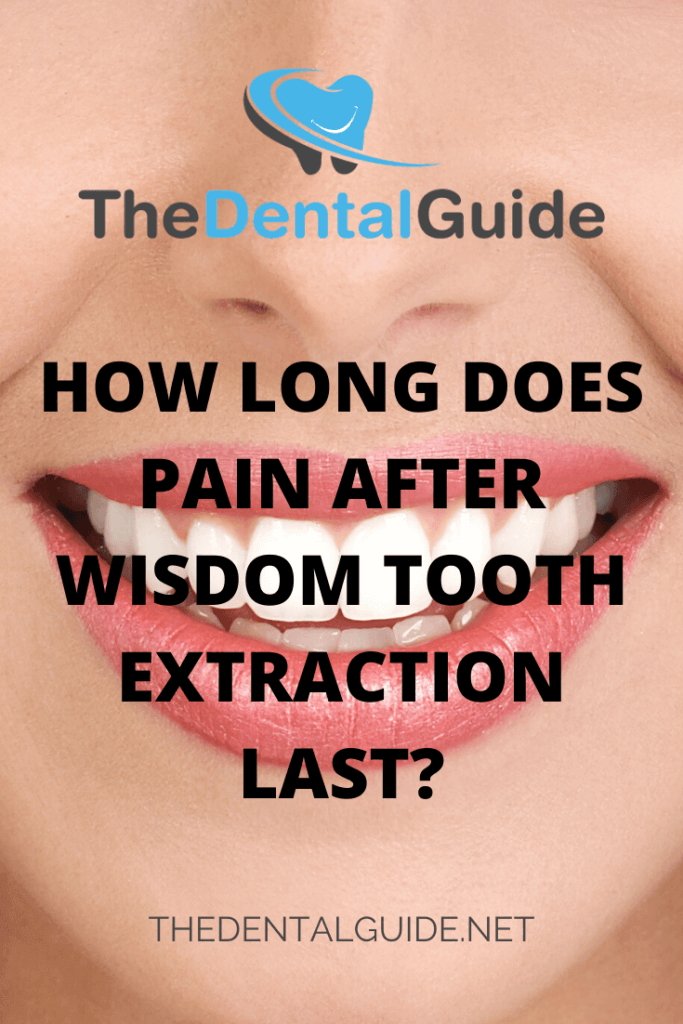Wisdom tooth extraction techniques have improved dramatically in recent years, making the procedure easier and safe than ever before. As long as you follow all recommended guidelines, your recovery time following an extraction should remain minimal.
However, that doesn’t mean extractions are entirely pain-free. You can expect mild to moderate pain during your recovery. But how long does pain after wisdom tooth extraction last, and how can you minimise it? Today, we’ll take a closer look at everything you need to know about post-extraction wisdom tooth pain.
What Causes Wisdom Tooth Removal Pain?
To understand why the removal procedure causes pain, let’s first take a closer look at what it involves.
Also called “third molars,” your wisdom teeth are the back teeth located on each side of your upper and lower jaws. Unlike all your other teeth, which start to emerge around the age of six, wisdom teeth don’t appear until later in life, usually between the ages of 17 and 25.
For some people, their wisdom teeth emerge with no issues. However, for others, their emergence causes problems. Wisdom teeth don’t always emerge in a straight line, so they have a tendency to knock other teeth out of alignment, creating spaces in your smile that act as a breeding ground for bacteria.
The procedure used to remove wisdom teeth depends on their current location in your mouth. They can be either completely or partially emerged.
Here’s what each situation involves:
Complete Emergence
If a tooth has completely emerged, it’s erupted fully from the gumline. A fully-emerged tooth is held in place by periodontal ligaments. Your dentist loosens these stretchy, organic fibres with special tools so that the tooth can be pulled from its socket.
If wisdom teeth emerge in their proper positions, they don’t necessarily cause problems. Unfortunately, a simple extraction isn’t an option for many problem wisdom teeth.
Partial Emergence
A partially emerged tooth hasn’t completely cleared the gumline, so some of its crown (the top part of the tooth normally visible) is still within the gums. A simple extraction isn’t possible with partially emerged teeth. Instead, removal requires dental surgery.
The dentist makes a small incision in the gum line to access the tooth. If possible, the tooth is then removed completely. However, if the tooth is still inaccessible, the dentist might need to cut it into smaller pieces for removal.
Most extractions use local anaesthetic and oral sedation. The anaesthetic numbs your mouth, so you don’t feel the incision (if applicable) or the ligaments being loosened. The oral sedation is to help you feel relaxed and comfortable during the procedure, especially if you’re not a big fan of spending time in the dentist’s chair.
Wisdom tooth removal pain has two causes:
- The invasive nature of the procedure, such as the incision into the gumline
- The healing process associated with repairing the open socket
Aside from pain, other issues likely to occur are bruising, swelling, and jaw impairment.
How Long Does the Pain Last?
Immediately following the procedure, your mouth will likely feel numb from the anaesthesia for a few hours. Don’t eat or drink anything for six hours afterwards.
Additionally, you’ll likely have a tired and relaxed feeling from the sedative. Although dental sedatives typically aren’t strong enough to knock you out completely, you’ll still need someone to drive you to and from the dentist’s office.
The severity of the specific procedure dictates the exact length of time you’ll need for recovery. However, generally, how long does pain after wisdom tooth extraction last? Here’s an estimate:
- Day one: Blood clots will start to form in the mouth
- Days two to three: Mouth swelling should subside significantly
- Day seven: Stitches are removed (not every procedure requires stitches)
- Days seven to 10: Jaw functions should return to normal
- Two weeks: Any facial bruising should disappear
Your dentist might prescribe a painkiller for you, but in many cases, over-the-counter medicine will work just fine. Additionally, you’ll need to gently rinse your mouth to keep the wound clean. Your dentist will likely give you a prescription mouthwash.
You’ll need to only consume liquids and soft foods during the first few days following the extraction. Additionally, only eat or drink items that have a mild temperature. Avoid hot or cold drinks, especially during the first 24 hours. Finally, avoid smoking and alcohol.
Final Thoughts
If you’re wondering how long does pain after wisdom tooth extraction last, hopefully you’re now more at ease. Most extraction procedures involve minimal discomfort, and even this usually lasts only a few days.
While nobody wants to experience even mild pain, keep in mind it’s only temporary, while the benefits of a healthy smile last a lifetime.
